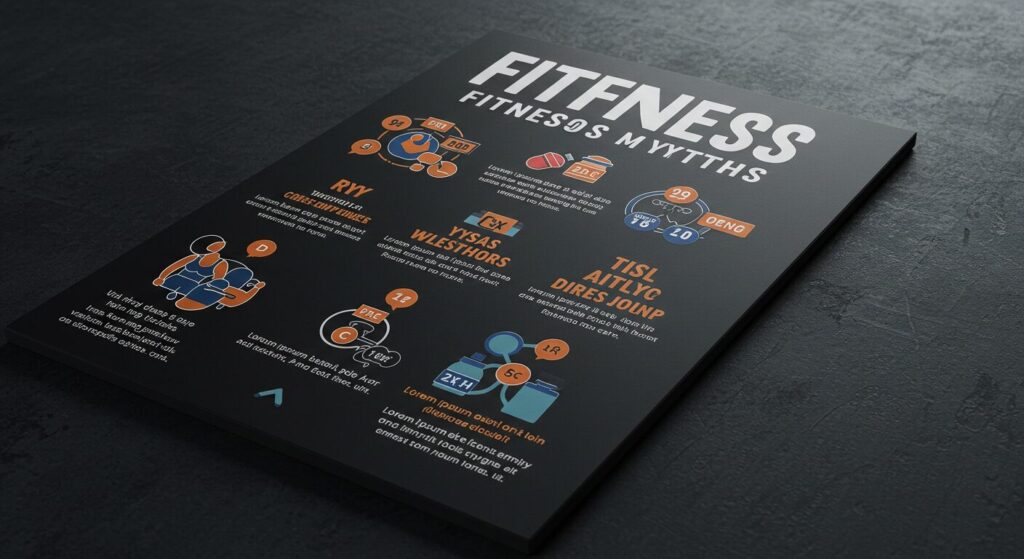10 Common Fitness Myths Debunked by Massachusetts Experts

When it comes to fitness, there is no shortage of myths and misconceptions that can hinder progress and lead people down the wrong path. While it’s easy to get caught up in the latest trends or advice, fitness myths in Massachusetts and beyond can often steer people in the wrong direction. In this blog, we’ll explore and debunk 10 common fitness myths with the help of local experts, providing you with the facts to guide your fitness journey.
Myth #1: You Need to Spend Hours at the Gym to See Results
One of the most persistent fitness myths in Massachusetts is the idea that you need to spend hours at the gym for effective results. In reality, quality matters more than quantity. Common exercise myths in Boston often suggest that long, grueling sessions are the key to success. However, experts emphasize that short, focused workouts can be just as effective, if not more. By prioritizing intensity over duration, you can see improvements in strength, endurance, and overall fitness without sacrificing hours of your day.
Myth #2: Lifting Weights Makes Women Bulky
Another widespread fitness misconception in Massachusetts is that weightlifting will make women bulky. This myth discourages many women from incorporating strength training into their routines. The truth is, lifting weights helps women build lean muscle, which increases metabolism and improves body composition. Women have lower levels of testosterone than men, so it’s unlikely they will bulk up the way men might. Strength training, instead, tones the body and increases functional strength, which can lead to a more sculpted, fit appearance.
Myth #3: Cardio Is the Best Way to Lose Weight
A common exercise myth in Massachusetts is that cardio is the best and only way to lose weight. While cardio is a great calorie burner, it’s not the only exercise you need for effective weight loss. In fact, incorporating strength training into your routine can help build lean muscle, which increases your metabolism and helps you burn more calories at rest. Popular fitness myths debunked by experts stress that a combination of both strength training and cardio offers the best approach to weight management and overall fitness.
Myth #4: You Should Stretch Before Every Workout

Many people believe they should stretch before every workout to prevent injuries. However, misconceptions about fitness training often lead people to practice static stretching (like touching your toes) before exercising. This is not ideal, as it can actually reduce strength and performance. Instead, dynamic stretching—such as leg swings or arm circles—is more effective in warming up your muscles and preparing them for action. Static stretching is best saved for the cool-down phase after a workout to improve flexibility.
Myth #5: You Can Target Fat Loss in Specific Areas
The idea that you can “spot reduce” fat from specific areas of your body is one of the most widely believed common exercise myths in Boston. Unfortunately, this simply isn’t true. Fat loss occurs evenly across the body, and no amount of crunches or leg lifts will eliminate fat from your belly, thighs, or any other area. Experts advise focusing on overall weight loss through a combination of cardio, strength training, and proper nutrition for effective fat reduction.
Myth #6: You Can’t Build Muscle and Lose Fat at the Same Time
This fitness misconception in Massachusetts suggests that it’s impossible to build muscle and lose fat simultaneously. The truth is, it is entirely possible, especially for beginners or those returning to exercise after a break. Building muscle increases your metabolism, helping you burn fat even while at rest. Misconceptions about fitness training often fail to account for the body’s ability to adapt and change over time. By focusing on a balanced diet and incorporating both strength and cardio workouts, you can successfully build muscle while shedding fat.
Myth #7: The More You Sweat, the Better the Workout
A prevalent exercise myth in Massachusetts is that the more you sweat, the better your workout. While sweating can be an indicator of physical exertion, it’s not always a measure of workout quality. Sweating depends on various factors, including your environment, clothing, and even your fitness level. The most effective workouts are those that challenge your muscles, improve endurance, and achieve your fitness goals—not necessarily the ones that make you sweat the most. It’s the effort and consistency that matter most.
Myth #8: Older Adults Should Avoid Intense Exercise
A misconception about fitness training that is particularly harmful is the belief that older adults should avoid intense exercise. In fact, staying active as you age is crucial for maintaining bone density, muscle mass, and overall mobility. Fitness misconceptions in Massachusetts often discourage older adults from engaging in strength training or high-intensity interval training (HIIT). However, experts agree that incorporating moderate to intense exercises into your routine can help improve balance, flexibility, and heart health, leading to a better quality of life.
Myth #9: You Should Work Out Every Day for Maximum Results
One of the common exercise myths in Boston is that working out every day will produce the best results. However, recovery is just as important as exercise itself. Overtraining can lead to burnout, injury, and a plateau in progress. Experts recommend balancing your workout schedule with rest days or lighter activities like walking or yoga. This gives your muscles time to repair and grow, leading to better long-term results.
Myth #10: Supplements Are Essential for Fitness Success
While supplements can be beneficial in some cases, fitness myths in Massachusetts often lead people to believe that they’re essential for success. In reality, supplements should never replace a balanced diet rich in whole foods. Misconceptions about fitness training sometimes suggest that protein powders or fat burners are the key to achieving fitness goals, but the truth is, proper nutrition and a consistent exercise routine are the most important factors for success. Focus on eating nutrient-dense foods to fuel your body and reach your fitness goals.
Fina Remarks

There are countless fitness myths in Massachusetts that can mislead and confuse anyone starting their fitness journey. By debunking these fitness misconceptions, you can make informed decisions that will lead to better, more sustainable results. The best approach is to consult experts, focus on proven fitness strategies, and develop a routine that works for your body and goals. By understanding the truth behind these common exercise myths, you can achieve lasting fitness success without falling for misleading advice.
Contact us today to schedule a consultation and start your journey toward a healthier, more informed fitness routine!
FAQs
Do I need to spend hours at the gym to see results?
No, short, focused workouts can be just as effective. Quality and intensity matter more than the amount of time spent at the gym.
Will lifting weights make women bulky?
No, lifting weights helps women build lean muscle and boosts metabolism. It won’t make women bulky due to lower testosterone levels.
Is cardio the best way to lose weight?
Cardio helps burn calories, but strength training is just as important for weight loss. A mix of both cardio and strength training is most effective.
Should I stretch before every workout?
Static stretching before workouts can harm performance. It’s better to do dynamic stretches before, and save static stretching for after your workout.Can I target fat loss in specific areas of my body?
No, spot reduction is a myth. Fat loss occurs evenly across the body through overall weight loss, not specific exercises.
